#<- i have actually had So many projects. there's this one. there's my string quintet medley (also posting next week)
Note
Hey! I remember you talking about writing a novelization of TCD a while ago and I was wondering if you were still working on that, because it sounded really cool and if you are still working on it I just wanted you to know that I am very much excited to read it when it’s done!
(If you aren’t working on it anymore ignore me lol)
oh yes i was working on that at the end of last year! i did actually finish it (i even have a printed & bound copy on my bookshelf) and I've been meaning to start posting it all year. I've been thinking about it a bit lately, like starting to post it next week when tcd is running off-broadway? really the only thing that's been keeping me from posting it all year is figuring out how to insert images into ao3, just since i want to include my art in the fic as well, not just on tumblr
so yes, it will start posting next week (fingers crossed 🤞)
#not gonna bother reading through it again just bc i will just be cringing so hard at everything#and also i have read over & edited SO MUCH before i finished it that i absolutely Cannot handle trying to make any last fixes#planning on having the cover art in one chapter posting their opening night#the prologue chapter the next day#and the first actual chapter their closing night#then after that it'll be like every week or something#and i'll have the black and white art in the fic and post the color versions here? maybe?#Constance answers#asks#tcd#the clockmaker's daughter#Constance's tcd project#<- i have actually had So many projects. there's this one. there's my string quintet medley (also posting next week)#and i did another one involving character design where i drew every. single. character.#every sing ensemble character even.#it is a lot of art#anyway thank you for sending this ask now i have put it out there that I'll start posting it
5 notes
·
View notes
Note
Could you go into more detail re: your last post? I've been seeing so many reactions to what Steve did at the end of the movie and would love to hear your take on it because I'm desperate to hear from someone more level headed (and it seems like you definitely are). I've just seen a lot of people upset with/at Steve/Chris and need some reassurance lol. You can keep this private if you want or just make a separate post. Also hi, nice to meet you :)
I have been thinking about this all day, so I would be more than happy to elaborate for you! It’ll be under the cut.
It appears that the general arguments regarding Steve being out of character and not liking his ending is that he struggled for so long to put his past behind him, to find a place in the future with the family and friends he made, and by sending him back it compromised their future as well as Peggy’s and reduced her to simply a woman who stole Cap’s heart as opposed to this formidable force to be reckoned with and one of the founding members of S.H.I.E.L.D.
I don’t see it that way though. If anything, this is a Steve who failed and saw half of the universe snapped due to circumstances beyond his control and more importantly this is the first time we truly see Steve for the human he is, and not just the soldier out of time.
Two constant threads in Steve’s individual arc has been dealing with one never-ending battle after another and his struggle to acclimate to the times he’s in. I don’t mean in an ‘old man deals with newfangled technology’ sense, but Steve’s few years out of the ice pales in comparison to the seventy plus years it’s been for everyone else. Also keep in mind the era in which Steve comes from, because he deals with things internally or not at all (mostly not at all) and a therapy goer the man is not.
In TFA, pre-serum Steve has a myriad of health problems and is known to get into fights frequently. He’s tried several times to get enlisted; longing for that one chance to do something right, to do something good because he doesn’t like bullies and he doesn’t care where they come from. He meets Peggy and she sees the man he is way before he became Captain America. Keep in mind though that between post Project Rebirth and the crash, more time has passed than people tend to think about. Their feelings for one another have deepened, even if they’re not acted upon, which is why their final conversation over the comms is even more heartbreaking. They had something, they knew they had something, and now it was lost seemingly forever. Who could come back from that? Who honestly would want to?
The Avengers finds him a mere two weeks after the man was defrosted, in which he was learning that almost everyone he knew and loved was dead and that the Tesseract he crashed a plane to try and destroy was found and used by SHIELD to create weapons and had to push that into the back of his mind so he could fight aliens in the Battle of New York.
In TWS, he’s still struggling to find his footing between his past and and present. He visits Peggy and is happy that at least she was able to move on and have a life for herself, but every visit is melancholy and ends the same way - she slips out because of her dementia and he has to relive her finding out that he’s real and in front of her every time. I wouldn’t want to wish that experience on anyone, but do you know what that’s like to deal with a person who has that? To think you’re finally getting somewhere with someone for a moment and then the lucidness wears off and suddenly your heart is ripped out of your chest because you’re back at square one? To do that every single time you see them? Sam asking him what makes him happy breaks my heart every single time because he’s never been given the opportunity to figure that out, and once he learns that Hydra, again going with the whole “I crashed my fucking plane into the ocean and this shit is STILL happening” arc, has been entangled with SHIELD from its infancy, he knows the mission to take it down takes precedence over trying to take the time and figure that out for himself. Now, this movie is the Winter Soldier, and there’s Bucky to cover. At this point, Steve knows he doesn’t have much time with Peggy left when he uncovers the identity of The Winter Soldier. These two pillars are the last remaining ties to his past, which is why he tries so hard to try to joggle Bucky’s programming with not fighting back and the “I’m with you til the end of the line”. Steve knows he’s in there, he just had to get him out. He’s successful, and then that jump-starts the search post TWS leading into Age of Ultron and ending in Civil War.
Age of Ultron..is…well, okay it has more problems than anything else however, at this point it’s been three years since he’s been living in the future, and it would make sense that Peggy is still on his mind in Wanda’s dream sequence for him. He confirms it in Endgame for the first time by saying it aloud, but Peggy was the love of his life. It’s normal to dream about lost loves. He’s a man from that older era though, which is why we only have a stolen moment of him trying to remain stoic because he has to be a leader and appear unaffected for the sake of his team and the mission. I really wish the deleted scene where he comes out of the quintet with his coal to see the image of Captain America with the words “Fascist” above spray-painted on a building wall before he throws the helmet back inside was kept in because it shows SO MUCH without saying anything at all. This is where we see that break between who is he and what his superhero persona is supposed to represent. It’s not Captain America who makes Steve Rogers Steve Rogers, it is Steve Rogers who makes Captain America Captain America. And once again, we find him trying to make the sacrifice play if they aren’t successful and can’t get all Sokovian citizens as well as themselves out in time. Now all while this is happening, Sam is still trying to look for Bucky for Steve.
Which brings us to Civil War. Never has that line between his past and present been more apparent because it’s literally the plot to this movie. That’s it. That’s the whole thing. Bucky is deprogrammed but broken and more importantly to Steve - alive- and he knows that Bucky has that blood on his hands that Hydra used and abused him into spilling and that’s why if he could just get Tony to see that with these accords the powers at be, along with every country who signs, can dangle their help for political gain like they’re puppets on strings just like he was. Do they need to be put in check? Perhaps, but not by people with an agenda. It’s a dangerous game they’d be playing with no winners which is why Steve doesn’t sign them. And during that meeting with all of them discussing this, Steve learns that Peggy dies so his stake in this fight to preserve the last tether to his past increases tenfold. He’s not just fighting for Bucky, Steve is fighting for himself. By the time he’s dropped that shield, we’re shown that Steve has lost faith in his government, he’s lost faith in his friends, and he’s lost faith in himself.
He’s in Infinity War for six minutes and forty five seconds is screen time so there’s not much content wise to go on, but when we see Steve he is clearly not the man he was and you can tell something is broken inside him, but it’s not explored until Endgame.
I’m just going to focus on Steve’s arc in Endgame because while I really liked most of it, Thor and Natasha deserved better than that so here we go. If you have not watched Endgame, don’t go any further.
Between waking up and immediately having to fight post defrosting and uncovering the truth about SHIELD using the Tesseract to make weapons, Hydra being an entangled part of shield, the events of Civil War, and by the time we see him in Infinity War he’s a shell of whatever former self he was trying to grasp at straws with, and it wasn’t until we had this film that we actually see to what extent that was.
Endgame opens three weeks after the snap, in a time where they’re still desperately clinging to hope with trying to find a way to reverse things. Carol saves Tony and Nebula while he’s on the very brink of death in the Benatar, and tensions between the Steve and Tony are at an all time high. They lost. Everyone. They’re the Avengers, how could they lose?
Time jumps five years. Tony is living on a lake and has a young daughter with Pepper, and Steve has now taken over for Sam in leading group therapy meetings. Joe Russo’s character says he went on a date the night before and that his date cried before the salad and he cried after the dessert and there was nothing they could truly talk about because what could you talk about if half of the universe, including people you knew and loved, vanished in an instant and where you’re borderline living in some version of Lord of the Flies? He offers words of comfort, but he and half the people in that session don’t fully believe them. He lost the love of his life in ‘45 and woke up seventy years later and he hasn’t had a single moment of rest to do so. It weighs on him, on all of them. Natasha is at Avengers HQ still trying to find ways to help, and because of the nature of their work and who they are as individuals they can’t truly move on, him especially. But seeing Tony with his daughter I think was a catalyst of sorts for Steve, even if it didn’t fully register for him at first. One of the themes through Age of Ultron was this notion of “home”, and being an Avenger was something they all pretty much had to put first. Tony got his family, he got his home, and for someone who thought that the man who went into the ice seventy years couldn’t have that himself, there came a small burst of a what if. What if he could have that as well? If it happened for Tony…
Seeing Peggy in 1970, seeing his photo on her desk…that did something to him as well. After all those years, he’s still on her mind just seemingly as much as she’s on his. He gets that moment of seeing her again, and that longing was heartbreaking. Just one more look before he had to go back - something just for him because the mission came first, it always comes first, and he didn’t want to screw anything up so he buries it like he does everything else. Steve’s an intelligent little shit though and we’ll come back to that later.
Now here’s where I also need for you to keep in mind the conversation Banner had with the Ancient One in 2012. The Ancient One is hesitant on giving him the Infinity Stone because it will disrupt the pre-determined timeline, but Banner explains that the past is cemented in time and forever exists to allow for a subject to jump through time. Reality is experiential for individuals, meaning a person’s perception of time is linear, regardless of how they jump around the timeline. In layman’s terms, you travel to the past, that past becomes your future and your former present becomes the past which then cant be changed by the new future.
We’ve always known Steve is worthy of wielding Mjolnir so let’s just skip to the ending now shall we?
At the end, Steve goes alone to return the stones to their proper place in time, but also has become well versed in time travel for someone who’s not Banner or Tony. He sees this as a chance to have something that’s been unattainable to him for so long - to live the life Tony wanted for him. To be happy. To not have to fight for once in his life. So he goes to the right place in while in the quantum realm as to not disrupt the main timeline, and that’s when he doesn’t return we see that he’s become an old man finally at peace, handing Captain America’s shield over to Sam, who more than deserves the mantle, not exactly telling him that he got his happy ending with Peggy, choosing to keep it to himself and yet smiling wistfully all the same.
He never changed anything about Peggy’s future either. SHIELD clearly still exists, and do some people honestly think he wouldn’t give her the choice? If he didn’t think there was a strong enough of a chance or had she turned him down someway he would have respected her and returned to the main present timeline. Nothing changed about that, it was just an alternative path. By going back, Peggy’s life without Steve still exists and that Peggy who gets her reunion with Steve now represents a branch timeline.
I get not everyone liked the ending, I do, but to be fair, just because they didn’t like Steve’s ending because it doesn’t fit what they wanted doesn’t mean it wasn’t a fitting end for Steve. He can rest now. Finally.
#i have a lot of feelings about steve rogers okay#jensenwuvzhugz#becka answers things#a4 spoilers#long post for ts
402 notes
·
View notes
Text
The Best Albums of 2019

After listening to more than 2000 new albums in 2019, I’ve narrowed my picks down to The 20 Best Records of 2019.
I’ve included 3 essential songs from each pick, as well as a choice lyrical clip and a brief description of the album.
Noting beats actually LISTENING TO MUSIC! So don’t just read my thoughts: follow and listen to the Spotify playlist containing 60 songs from the top 20 albums:
https://open.spotify.com/playlist/5TWlfWoo54MQ5cYTMmB0RI?si=M_23L6DDRieVuA845A90Pg
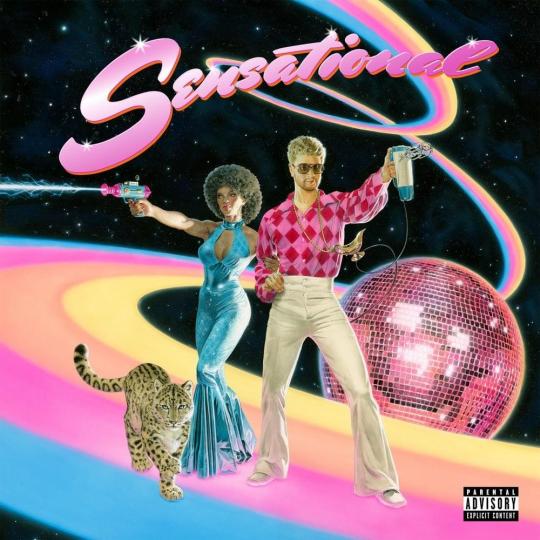
01: Yung Gravy - Sensational
Aptly titled Sensational, this debut full-length is a thirty minute party that dances between the hottest trap beats, well-placed samples, and the young Minnesota rapper’s braggadocious persona and ridiculous raps
Hey Alexa, how many bitches can we fit in the Tesla?...Pull up in that Model X with your model ex!
“Whip a Tesla” • “1 Thot 2 Thot Red Thot Blue Thot” • “The Boys Are Back in Town”

02: TWICE - &TWICE • Feel Special EP • FANCY YOU EP
Nine young South Korean women radiate endless energy, bountiful bliss, and some of the catchiest songs to come out not only in 2019 but recent memory
Even when things go wrong, feelings out of control: lessons, to be sure. Be okay, all right! Even a crying face is glittering, filter and laugh! You can return to invincibility, right? Blow off, and we havin’ fun! [Translated from original Japanese]
“Fake and True” • “Breakthrough” • “Stronger”

03: Sublime with Rome - Blessings
Frontman, bandleader, multi-instrumentalist, and producer Rome Ramirez delivers his finest record to date: eleven heartfelt reggae-driven songs that are as well-written as they are masterfully recorded and produced
Watching you feel good tonight: it's your song up on the station, and we don't even know no words. I wanna hear you roll your R’s, singing Spanish in the car, “Dime algo hermosa tonight”.
“Wicked Heart” • “Light On” • “For the Night”
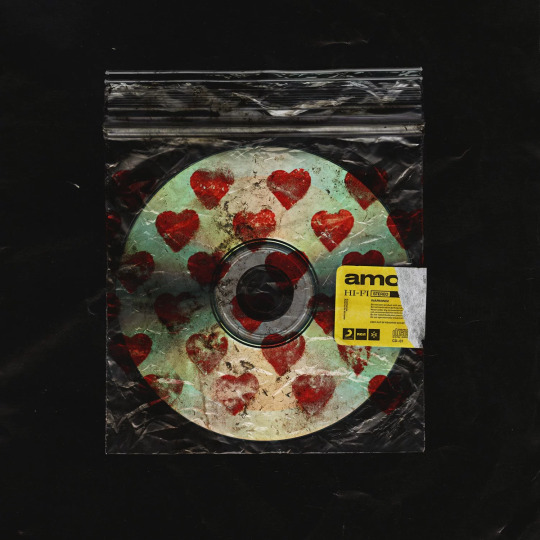
04: Bring Me the Horizon - amo
Cohesive yet genre-spanning (metalcore, hip-hop, electronic, and pop, to name just a few), the sixth album from the English quintet is an emotional yet insightful rollercoaster masterpiece
Before the truth will set you free, it'll piss you off. Before you find a place to be, you're gonna lose the plot. Too late to tell you now, one ear and right out the other one ‘cause all you ever do is chant the same old mantra.
“MANTRA” • “wonderful life” • “i apologise if you feel something”

05: Weezer - Weezer (Black Album)
Expertly produced and instantly memorable, the long-running Rivers Cuomo-driven California quartet is once again in top form, adding yet another fresh and unique — but distinctly Weezer — record to their extensive discography
Don't get mad at me, I'm just being honest. I should have lied, now you're mad at me? I'm just being honest. How 'bout from now on you'll write the script, I'll read the lines?
“Can’t Knock the Hustle” • “Zombie Bastards” • “Living in L.A.”

06: Big Data - 3.0
Like this sophomore album’s lyrical content — exploration of the impact artificial intelligence will have on humans and on the Earth — the latest project from producer, multi-instrumentalist, and mastermind Alan Wilkis is paradoxically dark yet bright; like AI, this album’s execution is equally flawless and Dangerous
I created a monster, it's out of control, it's going to take me...I didn't know what I was making...But now it's coming, coming for all of us!
“Monster” • “See Through” • “Evolution Once Again”
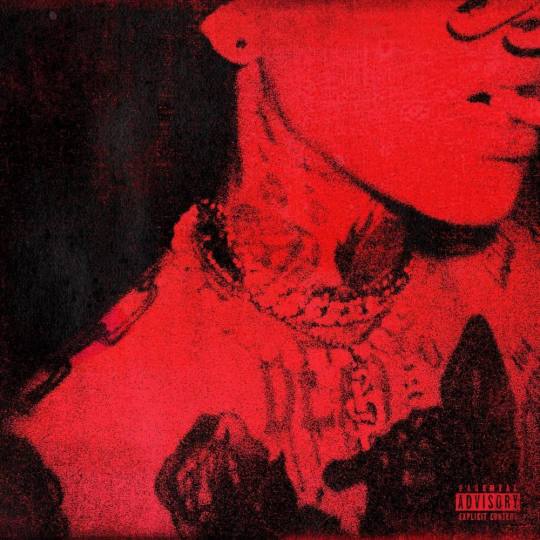
07: blackbear - ANONYMOUS
Vibrant yet dark, personal yet accessible, the fifth album from Mat Musto is a collection of 18 vulnerable, confessional songs told over slick electronic and hip-hop sounds
You drop the bag and ask me how my weekend was. I love that, though. You laugh when I make stupid jokes, and when I went to rehab, you didn't judge me that bad. I struggle with addiction probs, you always got my back. What am I gonna do the day that my drug dealer moves away? Whatever am I gonna say to my new plug? It just ain't the same.
“DOWN” • “HATE MY GUTS” • “DRUG DEALER”

08: Denzel Curry - ZUU
Hit-after-hit of hip-hop bangers pack this album’s half-hour runtime, with a plethora of guests joining the fray but never quite knocking it out like the young Miami native, Denzel Curry
First they mockin', now they hoppin', all on the wave, 'cause they see me poppin'. Big-big-big large pockets, they start flockin'. Here's what I say when they ass keep knockin'...
“RICKY” • “BIRDZ” • “ZUU”
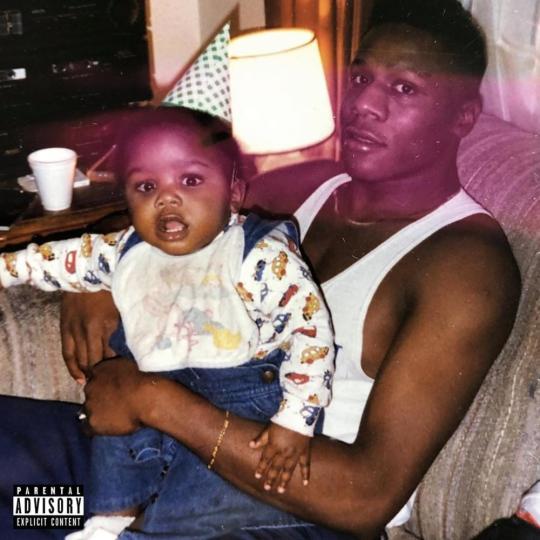
09: DaBaby - KIRK / Baby on Baby
On his two 2019 albums, his first proper efforts after countless mixtapes and singles, DaBaby unleashes his signature, incessant vocals over relentless trap and modern hip-hop beats
Prolly heard I was broke from a broke nigga, prolly heard I'm a ho from a ho! I don't know what you know, I ain't runnin' from no nigga, let’s go!
“BOP” • “OFF THE RIP” • “Suge”

10: Bayside - Interrobang
On their eighth album, the Anthony Raneri-fronted New York natives sound refreshed, focused, and tighter than ever telling their trademark tales of heartbreak and healing
I love that music saved you, and Lord knows it’s saved me too, but songs never love you back, and you never know the person preaching to you...
“Interrobang” • “Prayers” • “Bury Me”

11: The Hold Steady - Thrashing Thru The Passion
Few frontmen can weave an album’s worth of compelling narratives, yet the Brooklyn band’s Craig Finn finds himself on the seventh The Hold Steady album once again delivering ten more engaging, interlocked tales over his band’s fierce guitar riffs and all-too-catchy choruses
Thanks for listening, thanks for understanding: tequila takeoff, Tecate landing.
“Entitlement Crew” • “Denver Haircut” • “You Did Good Kid”
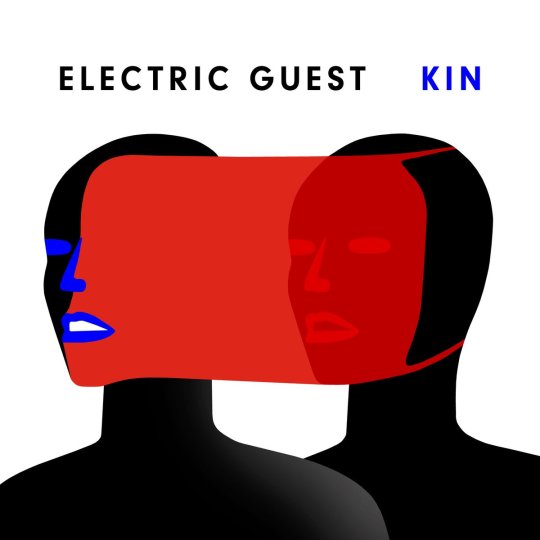
12: Electric Guest - KIN
Sugary sweet, the third record from the California duo promptly polishes any rough few rough edges they once had to deliver a perfectly slick yet quirkily heartwarming collection of eleven easy-listening songs
I'm like, “this mothafucka might sue me, and that mothafucka might boo me”. I'ma keep on goin' to a better day, all this other bitterness can fade away.
“Dollar” • “I Got the Money” • “More”

13: Billie Eilish - WHEN WE ALL FALL ASLEEP, WHERE DO WE GO?
Part punk energy without sounding even slightly punk, part emo diary without being a dashboard confessional, the debut record from American teenager Billie Eilish craftily bounces between genres, haunting sounds, and strange stories
If you think I’m pretty, you should see me in a crown. I'm gonna run this nothing town. Watch me make 'em bow one by one by one.
“bad guy” • “my strange addiction” • “you should see me in a crown”
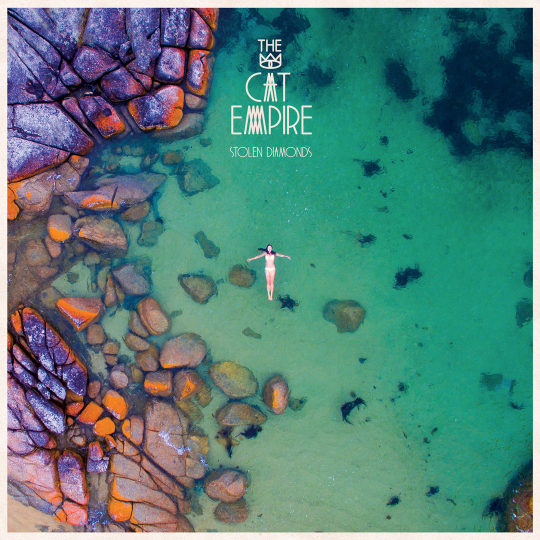
14: The Cat Empire - Stolen Diamonds
The eighth album from Australia’s The Cat Empire is a full-blown dance party packed with catchy, clever songwriting and a room full of drums, horns, strings, keyboards, turntables, and bass
Operator, please, I can’t get out my head. Tell me where I’m going or where I’m being led. Tell me like an order, and order I’ll obey. Maybe I just thought you said, or did I did I hear you say, “We’re going to ([kill a man]) Kilaman-jaro, jaro…”
“KIla” • “Stolen Diamonds” • “Ready Now”

15: Dirty Heads - Super Moon
Co-frontmen Dirty J and Duddy B return to the beach for the seventh Dirty Heads album, borrowing sounds from across their entire discography of acoustic guitars and witty hip-hop to craft a surprisingly delicate record
I'm a flame, I'm a beacon that won't go out. In the dark, in the rain, I'm your lighthouse. When you can't stand the pain, hope you know now, I'll keep you safe, I'm your lighthouse.
“Super Moon” • “Lift Me Up” • “Tender Boy”

16: TENDER - Fear of Falling Asleep
Dark and uninviting, the second album from this London duo is an intimidating but rewarding listen delicately spiced with just enough hooks to keep you trapped in its atmospheric dreams
I’ll be looking for the scent when it goes cold. I’ve been trying to beat the maze with a blindfold on. I’ve been foraging through mud and sticks searching for that power that don’t exist.
“Closer Still” • “Bottled Up” • “Handmade Ego”

17: Logic - Confessions of a Dangerous Mind / Supermarket Soundtrack
Logic returns once again with countless rhymes delivered over his trademark breathless bars, frequently painting an all-too-vivid picture of a famous rapper struggling to comprehend the world around him
All these comments got me lost in my mind; all these thoughts that I'm having are not mine. I always post that I'm having a good time so my life looks perfect online...
“Homicide” • “Don’t Be Afraid to Be Different” • “Lemon Drop”

18: Tyga - Legendary
More than just a collection of hits, the seventh album from the Compton rapper is well-sequenced and effortlessly laced with hook-after-hook for Tyga to deliver his signature obscene lines about things he self-admittedly has too many [sic] of: money, cash, hoes, cars, clothes, flows
Hey, shut the fuck up, bitch, you know who I are. Point blank range, and I'm shootin' for the stars. You niggas subpar and I just raised the bar. You got Rollies on your wrist, this is Chopard. Slide on your block like a fuckin' go-kart, my nigga A&R, still got an AR.
“Haute” • “Lightskin Little Wayne” • “On Me”
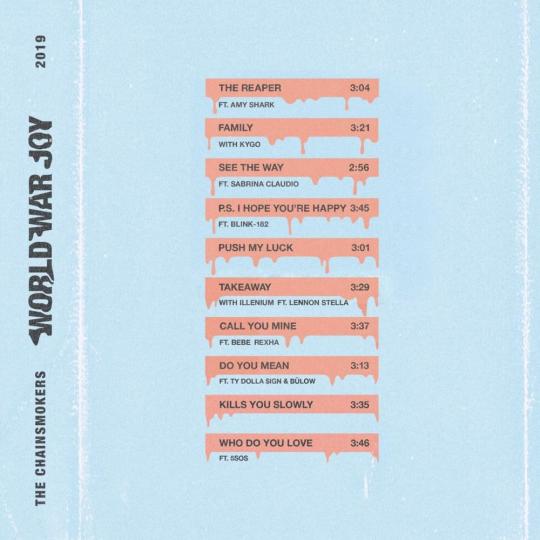
19: The Chainsmokers - World War Joy
The third album in three years from Alex Pall and Drew Taggart (and no shortage of guests) is an easy, light collection of ten slick relationship-focused pop songs that find the duo largely eschewing their dance-centric history
You said, "Hey, whatcha doing for the rest of your life?" and I said, "I don't even know what I'm doing tonight". Went from one conversation to your lips on mine.
“The Reaper” • “Family” • “P.S. I Hope You’re Happy”
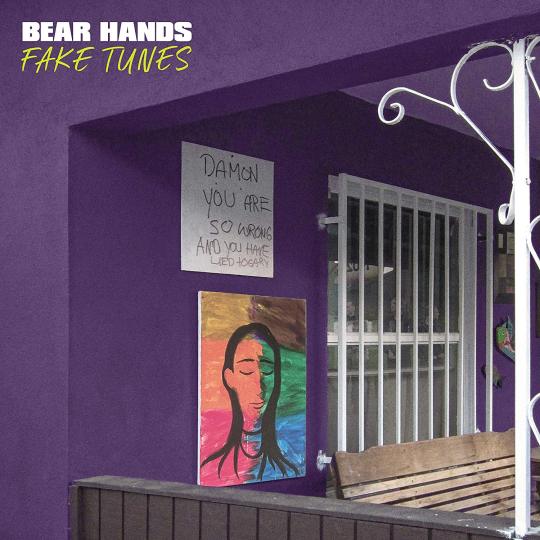
20: Bear Hands - Fake Tunes
Brooklyn’s Bear Hands returns with another collection of bright, bouncy songs that ever-so-slightly conceal the trio’s underlying sadness and struggles
I don't see how you think you can come to me, and bitch to me, lay out your problems, like ancient history, like I ain't got no other shit to do. I love you, baby, but my lips are turnin' blue.
“Blue Lips” • “Back Seat Driver (Spirit Guide)” • “Mr. Radioactive”
THE BEST ALBUMS OF 2019
Yung Gravy - Sensational
TWICE - &TWICE • Feel Special EP • FANCY YOU EP
Sublime with Rome - Blessings
Bring Me the Horizon - amo
Weezer - Weezer (Black Album)
Big Data - 3.0
blackbear - ANONYMOUS
Denzel Curry - ZUU
DaBaby - KIRK / Baby on Baby
Bayside - Interrobang
The Hold Steady - Thrashing Thru The Passion
Electric Guest - KIN
Billie Eilish - WHEN WE ALL FALL ASLEEP, WHERE DO WE GO?
The Cat Empire - Stolen Diamonds
Dirty Heads - Super Moon
TENDER - Fear of Falling Asleep
Logic - Confessions of a Dangerous Mind / Supermarket Soundtrack
Tyga - Legendary
The Chainsmokers - World War Joy
Bear Hands - Fake Tunes
1 note
·
View note
Text
Dvorak New World Symhony 9 & Cello Concerto Gauteng Philharmonic Orchestra

CONCERTS:
Sat 3 March 19:00
Sun 4 March 15:00
Dvorak – Symphony no 9 (New World) & Cello Concerto
Czech Republic 100 years. In association with the Czech Embassy.
Czech cello soloist: Jan Pech
Czech conductor : Jan Štván
100th Anniversary of Czechoslovakia
Gauteng Philharmonic Orchestra in collaboration of Embassy of the Czech Republic.
Block A (Adult) – R310Block B (Adult) – R260
Block A (Senior) – R260Block B (Senior)- R210
Block C (Row P, Q, R) – R160
BOOK NOW
Brooklyn Theatre (012 460 6033)
Greenlyn Village Centre
C/o Thomas Edison and 13th Streets
Menlo Park

Jan Pech (Cello)
RNDr. MgA. Jan PECH, Ph. D. (*1982) is an active musician working in parallel as a scientist in the laboratory of computational fluid dynamics at the Institute od Thermomechanics of the Czech Academy of Sciences.
His musical education came from the Prague Conservatory and Academy of Performing Arts in Prague (professors R. Lojda, D. Veis, J. Hošek). He participated the masterclasses in Semmering and succeeded in the Prague Spring competition in 2012.
As a cellist, he performed several recitals and cooperated with many orchestras (Berg, South Czech Philharmony, Philharmony of the Nations, NTUSO Taipei, Prague Youth Philharmonic, Talich Chamber orch.). As a soloist accompanied by orchestra, he performed cello concertos of C. Saint-Saëns, J. Haydn, A. Kraft and repeatedly the famous B minor concerto of A. Dvořák.
Jan Pech excels in interpretation of compositions written for cello solo, which are the most often performed pieces of his repertoire, especially O. Kukal’s „Violoncelliana“, Bach’s suites or solo sonatas of Z. Kodály or P. Hindemith; he premiered the solo sonata of M. Knížák.
Besides the classical music he acts in projects of other genres. He established the Prague Cello Quartet and now leads his “PECH cello quartet”. He is a member of group Aktual.
Jan Štván (Conductor)

International master courses by Genadij Rozhdestvenski in Siena, Italy. Next year he also took IMG by Helmuth Rilling in Oregon, USA and Stuttgart, Germany. In the same time he worked as a chorus master in a National theater in Prague and then 6 years as the conductor and principal conductor in Nord Czech philharmonic in Teplice. After a few years he came back to the National Theater in Prague, where he performed operas as for instance Ottelo, Tosca or Salome. 1998 he bacame principal conductor in Opera in Pilsen where he performed many opera premieres and symphony concerts, for example Beethoven IX or Dvořák Requiem. In the same time he became a guest conductor by Nürenberger symphoniker in Germany. In between he worked in many foreign states, as guest conductor, for example in Italy, Lebanon or Switzerland. Between the years 2013-2016 he has done more than 90 concerts in France with the Moravian philharmonic Olomouc.
SYMPHONY NO. 9 IN E MINOR, OP. 95, “FROM THE NEW WORLD” by Tim Greiving

For a brief period in his early 50s, Antonín Dvořák left his home in Vysoká, Czechoslovakia – and his position as composition professor at the Prague Conservatory – to oversee the newly-founded New York National Conservatory. He came as an international celebrity, having made a name and successful body of work in Europe, and he brought his cachet to a hungry “new world” at the infancy of its high culture.
The composer’s ninth and final symphony was overtly inspired by his time in America (1892 – 1895), an attempt at harvesting our native musical seeds in the soil of his established style. (Dvořák, like Ives, wove the folk tunes of his homeland into a contemporary, symphonic tapestry.) He seized on two local kernels, that of Native Americans and of slaves, albeit loosely and colored by his Slavic sensibility. He knew Longfellow’s epic poem, The Song of Hiawatha, and was inspired by the funeral of the protagonist’s lover (Minnehaha) when he wrote his Largo, and by the dance of the Indians when writing his Scherzo. The composer never claimed any ethnomusicological accuracy in his depiction of Native Americans. In his introduction to the piece, he wrote: “I have simply written original themes embodying the peculiarities of Indian music, and using these themes as subjects, have developed them with all the resources of modern rhythms, harmony, counterpoint, and orchestral color.”
The New York Conservatory may have been the vanity project of a wealthy socialite, Jeanette Thurber, but it was actually quite socially progressive. All races and nationalities were openly welcome, and tuition was generously matched to whatever students could afford. (Dvořák encouraged his students to mine the traditions of America’s mistreated natives and slaves in their compositions, as he had done with the folk tunes of Bohemia.) One student who benefitted from the school’s unusually equal treatment was Henry Burleigh, a Pennsylvania musician and the grandson of a former slave. Burleigh worked as a copyist for Dvořák, who encouraged him to sing the African-American spirituals and plantation songs he had inherited. The spirit of that heritage found a home in the symphony’s serene second movement, and Dvořák even acknowledged the timbre of Burleigh’s voice by assigning the melody to the English horn.
The symphony was written in the spring of 1893, and premiered in New York that December, quickly becoming the composer’s most loved and most performed musical offspring. He soon returned to his home country, and many critics hear as much nostalgia for Vysoká in his “New World” as any uniquely American flavor – a bias Dvořák would likely concede.
Cello Concerto in B Minor, Op. 104
by Phillip Huscher

Dvořák began his cello concerto in New York on November 8, 1894; he completed the score on February 9, 1895 (at 11:30 A.M.), revised the ending that June, and conducted the first performance, with Leo Stern as soloist, on March 19, 1896, in London. The orchestra consists of two flutes and piccolo, two oboes, two clarinets, two bassoons, three horns, two trumpets, three trombones and tuba, timpani, triangle, and strings. Performance time is approximately forty minutes.
The Chicago Symphony Orchestra’s first subscription concert performances of Dvořák’s Cello Concerto were given at the Auditorium Theatre on January 29 and 30, 1897, with Leo Stern as soloist and Theodore Thomas conducting.
It was Victor Herbert, the composer of Babes in Toyland and Naughty Marietta, who inspired Dvořák to write the most beloved cello concerto in the repertory. We owe this historical curiosity, along with some of Dvořák’s most popular music, to Jeannette M. Thurber, the wife of a New York wholesale grocer, who exhausted her husband’s millions establishing an English-language opera company that folded and a National Conservatory of Music that flourished long enough to entice Dvořák to settle temporarily in the New World. The composer agreed to serve as director of her school for $15,000, and when he arrived in 1892, Victor Herbert was the head of the cello department. Herbert, who had come to the United States from Vienna only six years before, was highly regarded as a cellist, conductor, and composer, though he hadn’t yet written the first of the forty operettas that would make him enormously popular.
In 1892, Dvořák was as famous as any composer alive. Taking on an administrative title and a heavy teaching schedule was probably an unfortunate waste of his time and talents, although the music Dvořák wrote in this country includes some of his best: a string quartet and a string quintet (both titled American) composed in Spillville, Iowa; the New World Symphony; and this cello concerto.
For several years Dvořák had been unmoved by a request from his friend Hanuš Wihan, the cellist of the Bohemian Quartet, to write a cello concerto. During his second year at the National Conservatory, Dvořák attended the premiere of Victor Herbert’s Second Cello Concerto, given by the New York Philharmonic on March 9, 1894. It is difficult today to know why this long-forgotten score made such a deep impression on him, for Herbert was hardly an overwhelming or influential talent. But Dvořák enthusiastically applauded Herbert’s concerto, and he heard something in it that made him think, for the first time, that there was important music to be written for solo cello and orchestra. This concerto would prove to be the last major symphonic work of his career.
On April 28, 1894, Dvořák signed a new two-year contract with the conservatory. After spending the summer holiday in Bohemia, he returned to New York on November 1; a week later he began this concerto. While he was writing the second movement, he received word that his sister-in-law, Josefina Kaunitzová (with whom he had once been in love), was seriously ill. As a tribute to her, he quoted at length one of her favorite melodies, “Kéž duch můj sám” (Leave me alone), the first of his Four Songs, op. 82. He completed the concerto on February 9 (his son Otakar’s tenth birthday), at 11:30 in the morning.
After the premiere of the New World Symphony in 1893, Dvořák said, “I know that if I had not seen America I never would have written my new symphony.” The cello concerto shows no such outward signs of the composer’s American experience—it doesn’t imitate the rhythms and melodies of the native music he heard in the United States—and has often been accepted as an early warning sign of his homesickness. In fact, once Dvořák returned to Bohemia for the summer of 1895, with his new concerto in his bags, he realized that he couldn’t leave his homeland again; in August he wrote to Mrs. Thurber asking to be released from his contract. Since he had already contributed so much to American music, including a symphony as popular as any ever written, she could not refuse. The unveiling of the cello concerto, the last of Dvořák’s American products, belongs to the final chapter of his life: the premiere was given in London in March 1896, with the composer conducting. (The first American performance was not given until December.)
The literature for solo cello and orchestra isn’t extensive. At best, Dvořák can’t have known more than the single concertos by Haydn (a second was discovered in 1961) and Schumann, the first of Saint-Saëns’s two, and Tchaikovsky’s Rococo Variations for cello and orchestra. (He also knew the Triple Concerto by Beethoven and the Double Concerto by Brahms.) Dvořák had written one long-winded cello concerto in his youth and later said he thought little of the cello as a solo instrument (“High up it sounds nasal, and low down it growls”). Now, with little previous inclination and few useful models, Dvořák gave the form its finest example. Brahms is reported to have said, “Why on earth didn’t I know that one could write a cello concerto like this? Had I known, I would have written one long ago.”
The first movement of Dvořák’s Cello Concerto is as impressive as anything in the composer’s output.
The music is long and expansive. The orchestral exposition commits the textbook sin of traveling to a foreign key for the second subject—a luxury traditionally saved for the soloist—but Dvořák’s theme is so magnificent (Donald Tovey called it “one of the most beautiful passages ever written for the horn”) that it can justify the risk. Dvořák later admitted the melody meant a great deal to him. Once the soloist enters, the music grows richer and more fanciful. The development section dissolves into simple lyricism. By the recapitulation, Dvořák is writing his own rules: he bypasses his first theme and goes straight for the big horn melody, as if he couldn’t wait to hear it again. The movement is all the stronger for its daring and unconventional architecture.
Dvořák’s progress on the slow movement was sidetracked by the memory of Josefina, and, as a result, the music he wrote is interrupted midway by the poignant song she loved. The depth of his feeling for her, often debated and sometimes denied, is painfully clear. Josefina died soon after Dvořák permanently returned to Bohemia, and, hearing the news, he took this jaunty rondo finale down from the shelf and added a long, contemplative coda as a memorial. The concerto still ends in high spirits, but it’s no longer the same piece Dvořák took home from the New World.
0 notes